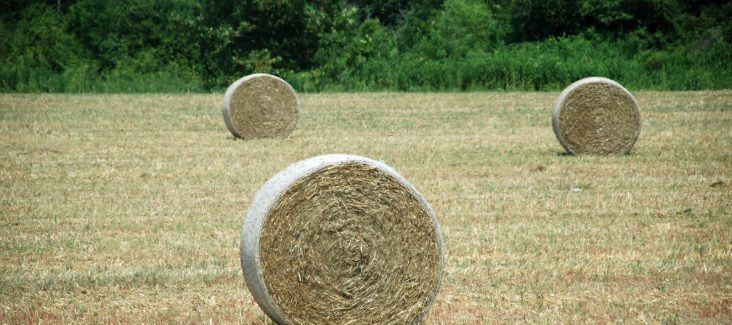Farm income to slide further in second half of 2018 amid Trump tariffs
by August 14, 2018 3:44 pm 947 views

As other segments of the state and regional economy are expected to continue heating up in the second half of 2018, agriculture income and farmland values will continue to decline for the remainder of the year, according to a recent survey by the St. Louis Federal Reserve Bank.
The Fed report on declining farm income and land values was released as Gov. Asa Hutchinson and U.S. Sen. John Boozman, R-Ark., crisscrossed the state to reassure rural communities that trade tariffs imposed by the Trump administration on China and U.S. allies won’t permanently hurt farmers or impair access of Arkansas-grown products to global markets.
The Fed survey, released Aug. 9, shows 24 agricultural banks across the expansive 8th Fed District expect farm income to decline next quarter, just as it did in this second quarter report. The 8th District includes all or parts of seven Midwest states, including Arkansas, Illinois, Indiana, Kentucky, Mississippi, Missouri and Tennessee.
Survey results show agricultural bankers continue to report year-over-year declines in farm income. The current index value marks the 18th consecutive quarter with a value below 100. Based on an index methodology with a base of 100, lower scores indicate proportionately more bankers report declining income from a year earlier. The second-quarter index value for farm income was 58, the report states.
Additionally, quality farmland values fell 3.5% in the second quarter, but cash rents increased by 0.4% compared with a year ago. On the other hand, there was a 1.6% increase in ranch land or pastureland values relative to a year ago, while cash rents declined by 9%. The decline in cash rents for ranch land or pastureland was the largest percentage drop recorded since the fourth quarter of 2016.
Earlier this year, the U.S. Department of Agriculture’s (USDA) Economic Research group forecasted that net farm income, a broad measure of profits, was expected to decline by $4.3 billion, or 6.7%, to $59.5 billion in 2018, the lowest net farm income level in nominal dollar terms since 2006. Net cash farm income is forecasted to fall by 5.1% or $5 billion to $91.9 billion, the lowest level since 2009. In inflation-adjusted 2018 dollars, net farm income is forecast to decline $5.4 billion, or 8.3%, the lowest real-dollar level since 2002.
The USDA has also sought to reassure the nation’s farming community that President Donald Trump would continue to back U.S. farmers in the face of retaliatory tariffs aimed at agriculture products. The Trump administration has also promised a $12 billion assistance package to provide temporary relief to farmers and ranchers experiencing financial fallout from the ongoing trade war.
In his weekly address, Gov. Hutchinson said his two-day listening tour across southwest Arkansas last week allowed him to listen to the concerns of Arkansas’ rural agriculture-based communities and farmers, calling them the “backbone of our economy.”
https://governor.arkansas.gov/news-media/weekly-address/listening-to-ar-farmers
“Our farmers are rightly concerned about the effect of tariffs on the export of their crops,” Hutchinson said. “But what I heard from them during my Ag Tour is that they are willing to give the strategy some time to work. Farmers understand that President Trump is trying to achieve more fairness in our trading relationships.”
Hutchinson said he believes President Trump’s hardline trade stance with China, the European Union and our closest allies in Canada and Mexico is producing results and is cause for optimism.
“In regard to NAFTA, we appear close to a modernized agreement that acknowledges the importance of continued North American Trade. We’ve worked with the EU to set mutual goals to reduce tariffs,” he said. “And even in the midst of the escalating trade war with China, its leaders have softened and agreed to rebalance trade and to buy more of our agricultural commodities.”
Despite those closely-held views by most Hutchinson and other GOP leaders, the Republican governor said he hopes the president can declare victory soon.
“These negotiations are encouraging, but our patient farmers know that a prolonged trade war will take a significant toll by diminishing their foreign sales and by discouraging direct foreign investment,” Hutchinson said.
